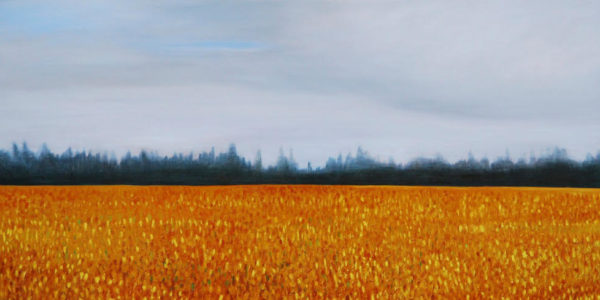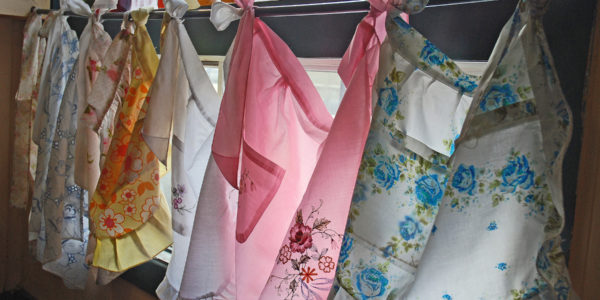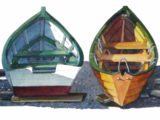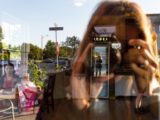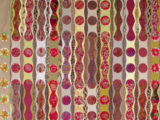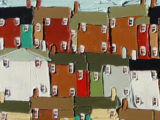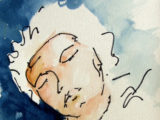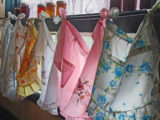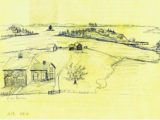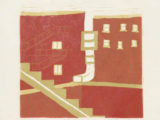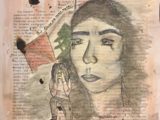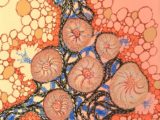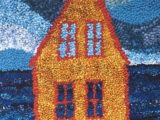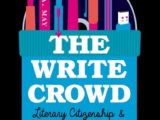Issue 9 (2016): Home and Away
Home and Away
in Editorial
I learned that moving can change more than an address—it can alter a sense of self. But I still cannot fathom true displacement. I have never left or made a home due to conflict, disaster, abandonment, discrimination, illness or economic crisis. For this I learn from others.
Going Home / Somewhere Borrowed
in Poetry
I thought I knew where I came from, but I lied. I shift my truths like furniture in a rented house. Cumin, coriander, tuberose: what does it matter if my memory draws blanks? Even perfumers are anosmic. Everywhere I go belongs to other people.
To Whom It May Concern
in Creative Nonfiction
Thanks for your email. I am sorry I have not responded. I've been trying to find a place to live. I left my rental suite due to mould exposure. The landlord denies it exists so I have been paying rent while not living in my place. I have couch-surfed at five different places so far.
For the Journey / I Know You Remember
in Poetry
An immigrants’ daughter with no memory of birth, place, or family save a Nova Scotian childhood starting at five. Today I’m training to Toronto (yes, they say that here) with a vegan attaché of important papers and appointments to keep, and snacks for the road.
Nowhere
in Poetry
In a town where everyone knows everyone and everything about each other I know surprisingly little. People ask, Are you a small town person or a big city person? I just assumed I was a big city person considering the smothering town I am escaping. But now the city is dizzy and lonely.
Collective Voices
in Poetry
When I went to that school in the refugee camp, we had no facilities and being a girl, you know, it means so many different things. We would study and go home at noon and wait and return the next day. Sometimes the teacher would not show up. I felt there was nothing to study.
Searching for Home
in Creative Nonfiction
There were dragons at home, though. Divorce came, a bitter crisis that left us all shattered. My mother stayed at the house with my two sisters, and I moved out with my father. I was ten. My father told me I was lucky to be with him, I was better off away from my mother.
Fractures: An Adoption Story
in Creative Nonfiction
His anger at being so unwanted in the world took on a more visceral, physical response as he grew older. His fists became a weapon of choice in expressing the rage he didn’t understand and I, three years older but not much bigger in size, a convenient punching bag.
Recipe Books / Colonial Guilt
in Poetry
I think of all the recipe books she gave me, that I crammed into a water-stained cardboard box and took to the Salvation Army the year I moved from Sherbrooke to Québec. She sits at the table, runs a finger down the list of ingredients for rhubarb crumble, flattens her lips in concentration
Legacy
in Poetry
What special event would warrant a photograph? Is the date the age of the house? Or is it recording the birth of a child?I was told there were twins—two houses, two brothers—one who built an exact copy of this house just down the road, with the floor plans reversed.
Gary Gets Angry Sometimes
in Fiction
He calls us Smiley, Pinky, and Blue Eyes, which makes us feel like 1930s gangsters. I call him Helmet Guy because each day during drop-in hours, he rides a shiny red electric scooter down the street from his unit to the housing co-op office and he always leaves his matching helmet on during our conversations.
Imagined Dialogues with My Grandmother
in Poetry
After she passes away I start listening to old Russian ballads, trying to imagine that she is singing back the nonsensical chants from my childhood. I cannot comprehend the language but its similarities to Serbian yield slow flows of faint echoes, providing an inexplicable comfort.
My Mother’s Wounds
in Poetry
These are my mother's wounds from the height of Lebanon's Civil War. But these are mere marks. Her true wounds are never ending anxieties from sudden loud noises, the never fading memory of seeing her sister thrown from the ground to building balconies
Her Story Repeats
in Creative Nonfiction
I moved to the United Kingdom forty-five years after my parents left Ireland for Canada. The daughter of outsiders became one herself. For my parents, immigration was a leap into the unknown. My father left his job in a bakery with the hope, but no promise, of better prospects abroad.
Little Red Roofs
in Poetry
I inherited a hooked rug from my grandmother depicting a rural structure all roof and snow, red and white, a Quebecois-style thing of a sort now much coveted in Bank Street antique shops that has seen much abuse at my hands, years since I took it after her death
What to Read Next: The Write Crowd
in Book Review
The Write Crowd: Literary Citizenship and the Writing Life by Lori A. May (Bloomsbury 2015) is not your average writing guide. It does not explore point of view or plot structures. It does not advise on how to pitch to agents or approach publishers. But it just may keep you writing.

